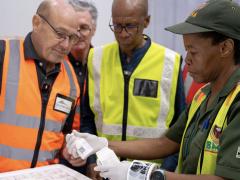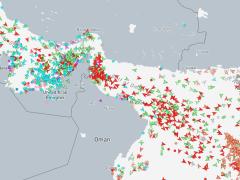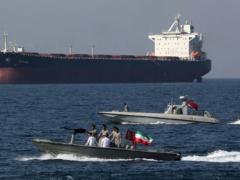Until South Africa can find a way of easing market access barriers, the country will not reach optimal levels of trade.
These are the sentiments of Khaya Sithole, a prominent accountant and economics commentator who was speaking during a webinar on the impact of outbound trade shows on SMMEs in South Africa. It was hosted by the Government Communication and Information System (GCIS) in collaboration with the Department of Trade, Industry and Competition (dti) on Tuesday.
The country and the African continent still suffer from a “trade deficit”.
“We simply do not do enough trade amongst ourselves. The consequence of [this] is that we are really not cultivating that dividend associated with the type of population sizes that we have,” he said.
This particular problem is long-standing.
“The continent was previously purposed for a different reason altogether, which was simply to extract [resources], rather than investing in the continent.
“Now, you'd have imagined that since the end of colonisation from way back in the 1950s, and of course to 1994, there would have been a more coordinated approach to say, how do we reverse the trends and the trade patterns associated with what we used to for a very long time as a continent.”
Unfortunately, he said, the continent had not done enough to reverse those trends.
He lauded the African Continental Free Trade Area (AfCFTA), saying it would put the continent on a better economic footing compared to other global regions.
"Other regions across the world have countries that have made it much easier for labour to migrate across borders for goods and services under the understanding that the easier it is for us to move items from one jurisdiction to another, the cheaper it is for the citizens of both countries to be able to trade with themselves. We know that there are significant upsides associated with that type of free trade agreement,” said Sithole.
In Africa, structural barriers associated with moving goods and services have remained.
“Until we find a way of easing those barriers, we are not going to capitalise to reach the most optimal levels of trade.
“With the AfCFTA now having been formalised, the question then becomes is it now easier for a small business in South Africa, or Burundi or Botswana to be able to say 'I want to be able to move my goods to another part of the continent'. And if it is a bit easier, are we then seeing an increase in the volumes of those goods being traded? Are we seeing an increase in the value of the goods being traded?”
That, he said, would be the litmus test of the continental free trade agreement.
"If it works as well as we would like it to work, it would mean that businesses will now have much wider market access, which is a deal-breaker for businesses where, perhaps, the margins are not strong enough or where margins are dependent on you reaching scale.
"So the question of accessing the scale is linked to the question of the population that you're able to sell your goods and services to. So the wider the market access, the better the chances of those businesses growing and thriving within the different regions."
Unfortunately, many do not know about the existence of a business until they arrive at a particular trade event and somebody finally explains what the business is about.
"It remains remarkably important for us to be able to promote and to be able to enable many small and emerging businesses, to be able to access the platforms, to be able to be given the type of visibility, to be able to be given that type of market access that enables many more potential trade partners - not to just know that they exist, but also the fact that they've done particular work and are willing to engage and collaborate with different partners, particularly across the continent. So it remains a big, big moment. It remains a very important way of facilitating and enabling businesses to be able to get a bit of market access."
Sithole said there was also the wider question of what was being done to enable these businesses not only to grow and thrive in the local context, but also to become global players.
"Every single global company started in a particular community, in a particular setting, with a particular support mechanism that enabled it not only to grow in this primary jurisdiction, but also to spread its wings across the continent, across the different borders, and ultimately, across the world," he said.
Deputy director-general for export development, promotion and outward investment, Lerato Mataboge, said the export mandate was “an essential element of the country’s industrialisation agenda”.
She said the dti had the National Exporter Development Programme which sought to increase the number of exporters in the economy.
“The target group is SMMEs, also drawn from the ranks of the previously disadvantaged, while still taking into account the needs of larger potential and established exporters. A key starting point is a national outreach programme to improve and strengthen South Africa’s export culture through export awareness workshops,” she said.
She added that there were many businesses that might wish to start exporting, but did not have an idea of where to begin.
“These workshops have been structured to be short and powerful, and are delivered regularly across the country,” she said.
In the 2021/22 financial year, the department held 18 export awareness seminars across the country that benefited 346 individuals. – SAnews.gov.za













